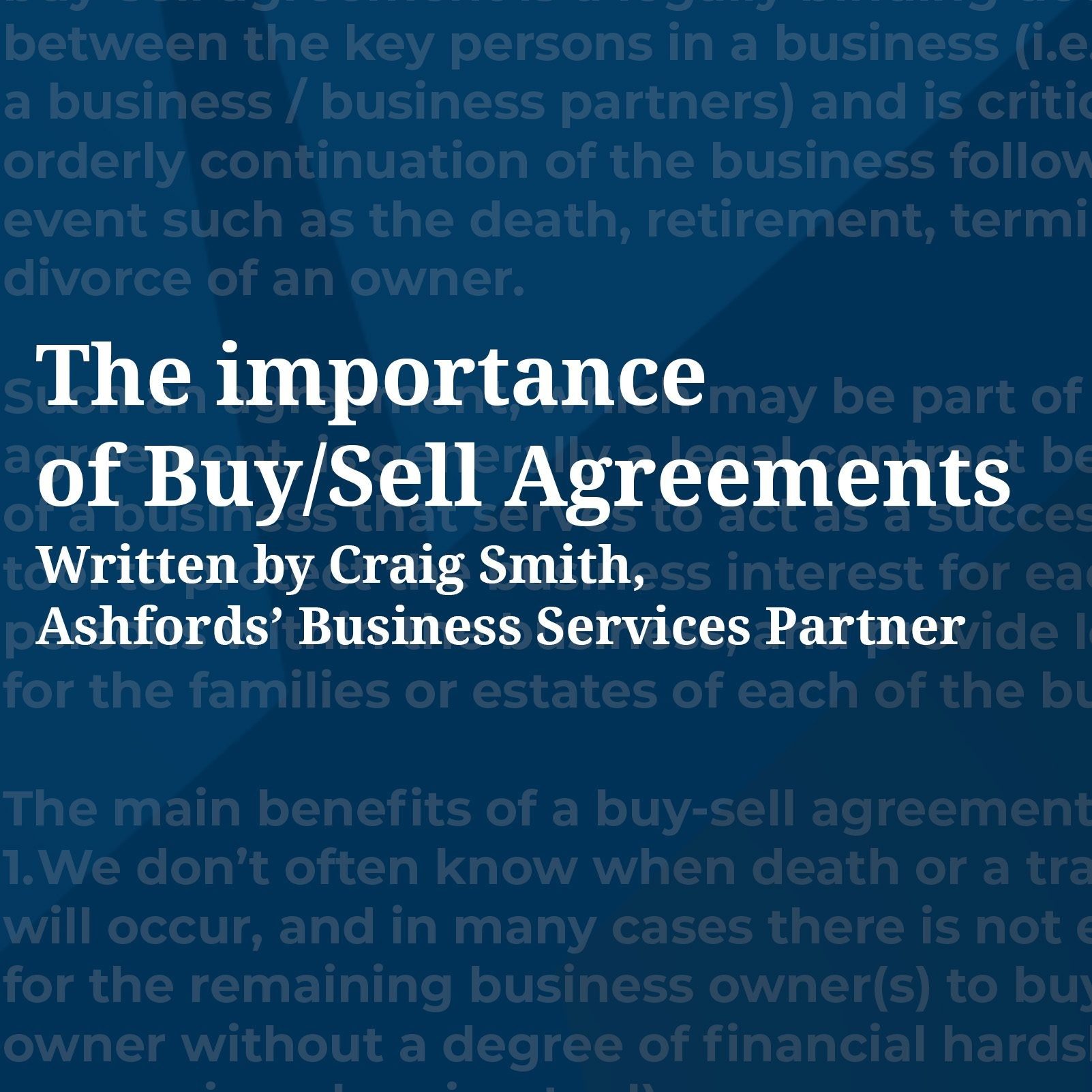Written by Craig Smith, Ashfords' Business Services Partner
What are Buy-Sell Agreements?
If you are a business owner with business partners, have you considered what would happen to your business ownership if something happened
to you?
We often see businesses facing difficulties because they do not have the appropriate agreements in place to cover such events. This is where
a Buy-Sell Agreement is crucial.
A Buy-Sell Agreement is a legally binding document between the key persons of a business (i.e. the business owners/business
partners) and is critical for the orderly continuation of the business following a ‘trigger event’ such as the death, retirement,
termination, or divorce of an owner.
Buy-Sell Agreements may be part of a broader shareholders’ arrangement, which can serve as a succession planning tool to protect the
business' interest while also providing legal certainty for the families or estates of each of the business owners.
The main benefits of a buy-sell agreement are:
- Inclusion of an insurance policy within buy-sell agreement can prevent financial hardship or the dissolution of business
- Formally setting out the agreed-to succession plan in a non-emotionally-driven format
-
Providing peace of mind for your family, with the knowledge of what will happen to the business should there be a ‘trigger event’
-
Preventing unwanted third parties' taking ownership or increased concentrations of current ownership by placing restrictions on the
transfer of shares.
Buy-Sell Agreements can be written for all forms of business structures, including trusts, companies and partnerships.
Below are some matters that well-written buy-sell agreements consider:
- How the business interest will be valued following a ‘trigger event’
- How the business interest will be transferred
- How the transfer / ‘buy-out’ will be funded (i.e. insurance)
- Entry and exit of the business owner(s) for various reasons both planned and unplanned.
Why are buy-sell agreements important?
It is essential for business owners to discuss the complex ‘what if’ issues so they are prepared should a medical, financial or legal matter
arise.
We often don't know when death or a traumatic event will occur, and in many cases, there is not enough money for the remaining business
owner(s) to buy out the exiting owner without a degree of financial hardship.
All business owners who are in partnership with others should ask where the money will come from to pay out a deceased business owner's
percentage to their family? After such an event, the surviving owners for example, may not want the deceased’s spouse to come into the
business and vice versa; the spouse may not want to go into the business and may ask for their share to be paid out.
A thoroughly thought out and sufficiently funded buy-sell agreement can provide for a key person pay-out and set out precisely what will
happen for all stakeholders should there be a ‘trigger event’. It will also provide a road map for the remaining business owners to continue
successfully operating the business.
There are different tax implications on insurance proceeds depending on who holds the policy and what the insurance policy covers. Ashfords'
Senior Risk Advisor, Tim Kay,
specialises in this area and is available to discuss what insurance options are most appropriate to your personal circumstances.
When should a buy-sell agreement be organised?
The best time for business owners to discuss these issues is now, rather than in the middle of a medical,
financial or legal issue. An agreement should be prepared in conjunction with business owners’ Estate Planning as, without one, you could be
leaving uncertainty behind.
Contact Ashfords Accountants and Advisory on 03 9551 2822 for your FREE INITIAL CONSULTATION with a Senior Advisor to discuss a
buy-sell agreement for your business.

